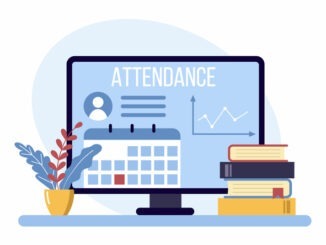
Improving our wellbeing may not always be straightforward, and there can be many factors that impact our mental health and wellbeing in all areas of our life
CREDIT: This is an edited version of an article that originally appeared on Open View Education
The radical changes and upheavals that we have gone through during the COVID pandemic has highlighted the value of the simple steps things that help us to maintain good mental health – sometimes changing an old habit, or taking on a new routine, can have a significant impact on our wellbeing.
Here are some steps that teachers, school staff and school leaders can take to cultivate positive mental wellbeing.
Keep emails in their place
Smartphones allow us to check our emails anywhere, at any time. This can be convenient and useful -however, it makes it far too easy to develop the habit of checking our emails outside of working hours.
To prevent emails sneaking into our time off, try removing work email accounts from your smartphone. It can also be useful to change our mindset around emails. Rather than ‘checking’ emails, think in terms of ‘processing’ emails; only open your email account when you are in a situation where you can reply and deal with what you have received.
Create a welcoming staff room
Working in a school can be a challenging and overwhelming job so having a staff room that is inviting and comfortable, allowing people the opportunity to recharge during the day, can be transformative. The way a staff room is laid out can also encourage positive interaction between people and foster connections. Keeping the space clear, and having a communal area where staff can easily sit and eat together, can be hugely beneficial.
Use mindfulness
Starting a simple mindfulness practice can be transformative to our wellbeing. Many people may have tried mindfulness before but found it challenging to keep it as a regular habit. Start small and keep it regular – you could try ‘mini mindfulness’. The next time you have a brief moment to yourself – it could be at the interval between one meeting and the next, or when you arrive at a location in your car. Close your eyes, and take three breaths, in through your nose and out through your mouth.
This simple habit of ‘resetting’ before starting our next segment of the day can give us an energy boost, and it’s an easy way to integrate mindfulness into our everyday lives.
Step out of ‘the tunnel’
When we face a tight deadline, or we have a lot of commitments to juggle, we tend to focus solely on the outcome of ‘getting things done’. The experience of having too little time to complete a task can put us into a mental state of ‘tunnelling’.
Being in this state of ‘tunnelling’ – in which we focus solely on reaching one single outcome – can cause us to neglect other areas of our life. If we are in this state of mind for long periods of time it can cause other areas of our personal life to suffer.
If you find yourself in this state, take a moment to step out of ‘the tunnel’ and connect with others.


Be the first to comment